It’s debatable who came up with the term “turntablism” — it could have been Daly City’s DJ Disk, or the more widely credited DJ Babu, from Los Angeles. But everyone can agree that the term proliferated in the late ’90s, when turntablism became shorthand for the much-buzzed-about art of playing a turntable as if it were an instrument.
13 of the Bay Area's Best Turntablism Albums
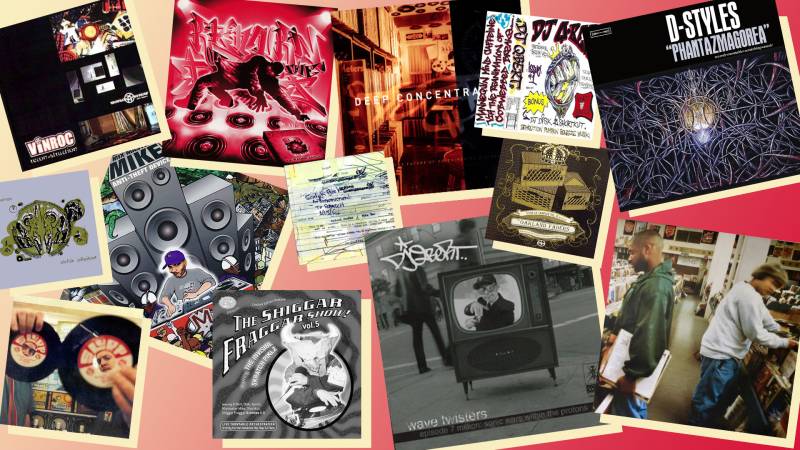
In its heyday, practitioners of turntablism claimed Bronx hip-hop pioneers like Grandmaster Flash and Grand Wizard Theodore as spiritual progenitors, and eschewed digital technology like CD-J players. The movement centered around global competitions like the DMC World DJ Championships and the now-defunct International Turntablist Federation (ITF) competitions. But its spiritual home was the Bay Area, where some of the era’s greatest events and innovations took place.
For those few heady years in the late ’90s and early aughts, sales of Technics turntables soared as fans attempted to mimic DMC and ITF all-stars like local heroes Invisibl Skratch Piklz, New York’s X-Men a.k.a. X-ecutioners, Miami’s DJ Craze, New York’s DJ Eclipse and Toronto prodigy A-Trak. Like the Bay Area’s jam-band scene, turntablism was best experienced live, where fans could fully appreciate the difficulty of crafting complex routines out of unsteady turntable needles and vinyl prone to skipping out of place.
Few turntablists managed to capture that sense of excitement in traditional audio recordings — where far too often, all that scratching could turn into a noisy blur. Yet for those who enjoy instrumental hip-hop, this sample of crucial turntablism recordings offer plenty of unusual delights.
DJ Qbert, ‘Demolition Pumpkin Squeeze Muzik’ (Dirt Style Records) (1994)
In the early ’90s, DJ Qbert was a DMC champion and a party-rocker capable of toggling between funky breaks and rap 12-inches garlanded with orbitals, flares, and transformer cuts. Among turntablism advocates, Demolition Pumpkin Squeeze Muzik is a classic example of his early style before he became the avatar of “skratch.” He threads the hour-long session with outtakes from the 1983 graffiti documentary Style Wars and includes routines from Rock Steady members DJ Disk and Shortkut. The original 1994 cassette tape of Demolition is hard to find now, but you can find streams of it on YouTube.
‘Return of the DJ’ (Bomb Hip-Hop) (1995)
Compiled by San Francisco DJ, events promoter, and Bomb magazine publisher Dave Paul, Return of the DJ arguably kicked off the turntablism era. It’s an international survey of the scene with contributions from Rob Swift of New York crew the X-Men/X-ecutioners, DJ Babu from L.A. unit the Beat Junkies, Japan’s ASAP Productions, future Phoenix star DJ Z-Trip, and L.A.’s Cut Chemist; as well as Daly City’s Invisibl Skratch Piklz and Mixmaster Mike. But Return of the DJ’s finest moment arguably belongs to San Francisco producer Peanut Butter Wolf: inspired by Common’s “I Used to Love H.E.R.,” his “The Chronicles (I Will Always Love H.E.R.)” resonates as a melancholy tribute to a culture then reeling from street violence and untimely deaths. Thanks to widespread acclaim — in 1999, Spin magazine named it one of the best albums of the decade — Paul issued four more volumes of Return of the DJ as well as other compilations that catalogued the global turntablism movement.
DJ Shadow, ‘Endtroducing’ (MoWax/ffrr) (1996)
Let’s not relitigate the once-heated debate over whether DJ Shadow’s classic album is “trip-hop” and “electronica.” The Bay Area DJ and producer was very much a part of the local hip-hop scene, a member of Solesides a.k.a. Quannum who contributed guest mixes to KMEL-FM and self-released cassettes like Hip-Hop Reconstruction from the Ground Up. After a handful of EPs for terminally cool British label Mo Wax, Shadow offered Endtroducing, a mood piece that’s indebted to David Axelrod’s instrumental jazz-rock as well as DJ Steinski’s cut-and-paste mashups. But close listeners will notice that Shadow utilizes turntable scratches, too, and he loops drum breaks underneath his compositions as if he were beat juggling them.
Mix Master Mike, ‘Anti-Theft Device’ (Asphodel) (1998)
Mix Master Mike’s formal debut after years of b-boy-focused mixtapes like Rescue 916 — the area code for Sacramento, where he lived for a few years — divided fans and critics upon its release. Few expected the Invisibl Skratch Pikl and newly named Beastie Boys DJ to issue a moody collaboration with electronic dub composer and Asphodel owner Mark “Naut Humon” Sprague. Heard today, it sounds like an ambitious attempt to thrust turntablism beyond the scratch-happy funk typical of the form. Mike excels as a rhythmic scratcher, and a close listen will find him subtly muddying Naut Humon’s quirky electro instrumentals. Still, Anti-Theft Device was inevitably overshadowed by Mike’s star turn on Beastie Boys’ world-conquering album Hello Nasty, which makes it ripe for rediscovery.
Qbert, ‘Wave Twisters – Episode 7 Million: Sonic Wars Within the Protons’ (Galactic Butt Hair) (1998)
Dave Paul once said that turntablism ultimately didn’t work as a recording genre because after Qbert released the best turntablism album ever, no one could top it. Indeed, Wave Twisters works as a brilliant conceptual piece filled with the kind of pop arcana that fueled the scene: early ’80s old-school hip-hop, cheesy science-fiction movies, juvenile sex jokes, and Japanese anime. Yet Qbert, who in 1996 had worked on the classic Dr. Octagon album with rapper Kool Keith and producer Dan “the Automator” Nakamura, is also the Jimi Hendrix of turntable scratching. He can construct fanciful music out of percussive noise in a way that, in others’ hands, often seemed unlistenable. In 2001, he turned Wave Twisters into a surreal animated film directed by Doug “Dug One” Cunningham.
‘The Shiggar Fraggar Show! Vols. 5-1’ (Hip Hop Slam) (1998-2000)
Despite burgeoning global fame as the best hip-hop DJ crew on the planet, the Invisibl Skratch Piklz never recorded a proper full-length album before splitting up in 2000. (However, they issued several showcases on DVD and VHS such as Turntable TV.) Their only official EP, a routine from Shortkut, Qbert, and Mix Master Mike titled Invisibl Skratch Piklz vs. Da Klamz Uv Death, drew a mixed fan reception upon release in 1996. All that makes these sessions recorded for Oakland radio DJ, journalist, and iconoclast Billy Jam’s “Pirate Fuckin’ Radio” broadcasts the best documents of their legendary prowess. Made between 1995 and 1996, The Shiggar Fraggar Show found the above trio, DJ Disk, DJ Apollo, DJ 8-Ball, MC U.B., and the mysterious Shiggar Fraggar transitioning between cutting up rap 12-inches like LL Cool J’s “I’m Bad” and unfurling their pioneering all-skratching style. With characteristic cheekiness, Billy Jam issued the five sessions on his Hip-Hop Slam imprint in reverse order, with Vol. 5 appearing first in 1998.
Vinroc, ‘Recon-struction’ (self-released) (1998)
Raised in Jersey City and an award-winning member of the New York crew 5th Platoon before relocating to the Bay Area, Vinroc became an advocate for the roots of hip-hop DJ’ing as a party-rocking artform and eschewed the global boom in scratch-centered turntablism. On his breakout mixtape, Recon-struction, he elegantly blends crucial numbers by A Tribe Called Quest, Brand Nubian, Public Enemy, and several other golden-age rap heroes. The beat never flags as he displays techniques that seem deceptively simple but, well, are not. Vinroc later formed the DJ crew Triple Threat with Shortkut and DJ Apollo, and they released the 2003 album Many Styles while earning fans for their blends of rap, soulful R&B, and dancehall reggae.
DJ Shadow & Cut Chemist, ‘Brainfreeze’ (Sixty7 Recordings) (1999)
In 1999, DJ Shadow and Cut Chemist headlined one of S.F. promoter Mark Herlihy’s Future Primitive events at the Justice League nightclub. They also sold copies of Brainfreeze, a classic mix themed around 7-Eleven Slurpees. Utilizing four turntables, Shadow and Cut Chemist blended rare 7-inches by the Mohawks and Rufus Thomas with select raps like Grandmaster Flash & the Furious Five’s “Flash It to the Beat” and, of course, “Unified Rebelution” by Chemist’s group Jurassic 5. As Brainfreeze became emblematic of a cultural shift towards deep funk and soul from the ’60s and ’70s (also see the Daptone Records label and Amy Winehouse’s Back to Black), the duo reprised their partnership for subsequent tours and DJs mixes like 2001’s Product Placement and 2007’s The Hard Sell.
D-Styles, ‘Phantazmagorea’ (Beat Junkie Sound) (2002)
Released at the tail end of the turntablism era, D-Styles’ Phantazmagorea is impressively hard and Gothic. As a member of several crews, including Beat Junkies and Invisibl Skratch Piklz, the South Bay DJ earned a reputation for mixing turntable scratches with pungent vibes evocative of mobb music producers like Studio Ton and Black C. (His work with the rap group Third Sight, particularly 1998’s The Golden Shower Hour, is worth seeking out.) Others like Mix Master Mike and DJ Disk flirted with that distinctly Bay Area bass sound, but D-Styles pushes it to an extreme on Phantazmagorea, creating an ominous splatter-movie tone that’s hardly mirthful.
Honorable Mentions:
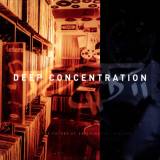
‘Deep Concentration’ (Om Records) (1998)
Thanks to then-new San Francisco electronic label Om Records, Deep Concentration drew a lot of national attention for surveying trends in turntablism and downtempo music. The compilation includes locals such as Eddie Def, Peanut Butter Wolf, and rappers Lyrics Born and Lateef the Truthspeaker.
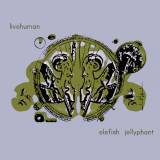
Live Human, ‘Elefish Jellyfant’ (Matador) (2000)
This collaboration between DJ Quest of Bullet Proof Scratch Hamsters a.k.a. Space Travelers, drummer Albert Mathias, and bassist Andrew Kushin brought scratch techniques to the Bay’s long-running bohemian jazz scene.
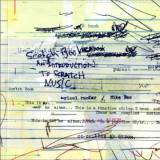
Ricci Rucker & Mike Boo, ‘Scetchbook: An Introduction to Scratch Music’ (2002)
On Scetchbook, Ricci Rucker and Mike Boo split the difference between scratch routines and moody downtempo instrumentals a la DJ Shadow. Their loop of a Prince electric guitar solo is an album highlight.
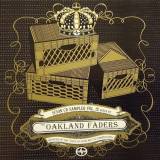
Oakland Faders, ‘Scion CD Sampler Vol. 12’ (2005)
As the winners of Toyota brand Scion’s 2004 “Free Up Your Mix” competition, the Oakland Faders crew — DJ Platurn, DJ Spair, DJ Mere, Joe Quixx and DJ Ammbush — as well as guest DJ Icewater created a noteworthy look at the brightly melodic sounds that defined Bay Area hip-hop in the aughts.


